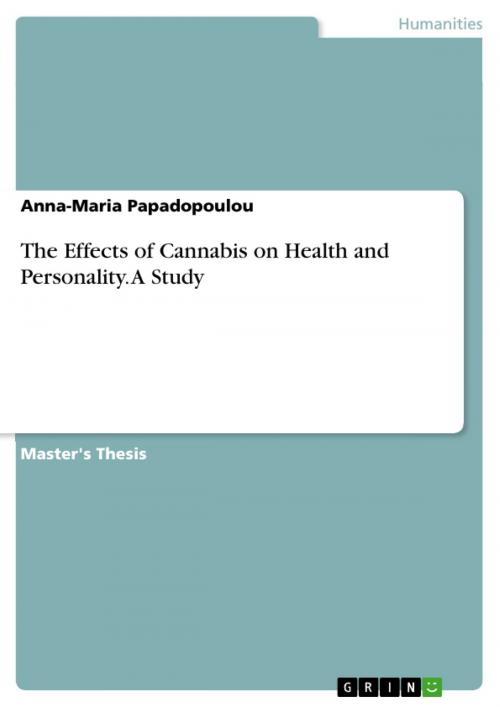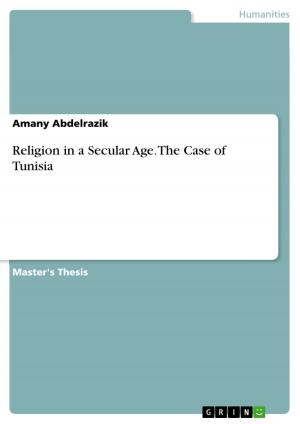The Effects of Cannabis on Health and Personality. A Study
Nonfiction, Health & Well Being, Psychology, Mental Health| Author: | Anna-Maria Papadopoulou | ISBN: | 9783668068179 |
| Publisher: | GRIN Verlag | Publication: | October 16, 2015 |
| Imprint: | GRIN Verlag | Language: | English |
| Author: | Anna-Maria Papadopoulou |
| ISBN: | 9783668068179 |
| Publisher: | GRIN Verlag |
| Publication: | October 16, 2015 |
| Imprint: | GRIN Verlag |
| Language: | English |
Master's Thesis from the year 2015 in the subject Psychology - Clinic and Health Psychology, Abnormal Psychology, grade: B-, , language: English, abstract: The aim of the current paper is to discuss the negative along with positive effects of cannabis on health as well as the attitude changes of the individuals as to whether they are typical and ordinary or dysfunctional. The objectives of the research study are the following: (a) issues regarding its possible adverse effects on mood, (b) the therapeutic potential of cannabis, (c) check the dissimilarities on personality traits between chronic, non-chronic and non-users, (d) gender differences, (e) check on depression stages amongst all three (3) groups. Cannabis consumption can be controlled but in some cases individuals experience negative psychological and physical effects due to the fact that their habit turns into addiction. Many psychological studies linked cannabis use and schizophrenia as well as depression levels showing a weak significant association but at the time there are not strong considerable results to establish those findings. This study supports the attitude change of heavy cannabis users in a psychosocial perspective but also giving evidence that cannabis can be used for therapeutic action as it has a potential role in the treatment of convulsive disorders, neuroticism and gives assurance for future benefits in a great range of illnesses.
Master's Thesis from the year 2015 in the subject Psychology - Clinic and Health Psychology, Abnormal Psychology, grade: B-, , language: English, abstract: The aim of the current paper is to discuss the negative along with positive effects of cannabis on health as well as the attitude changes of the individuals as to whether they are typical and ordinary or dysfunctional. The objectives of the research study are the following: (a) issues regarding its possible adverse effects on mood, (b) the therapeutic potential of cannabis, (c) check the dissimilarities on personality traits between chronic, non-chronic and non-users, (d) gender differences, (e) check on depression stages amongst all three (3) groups. Cannabis consumption can be controlled but in some cases individuals experience negative psychological and physical effects due to the fact that their habit turns into addiction. Many psychological studies linked cannabis use and schizophrenia as well as depression levels showing a weak significant association but at the time there are not strong considerable results to establish those findings. This study supports the attitude change of heavy cannabis users in a psychosocial perspective but also giving evidence that cannabis can be used for therapeutic action as it has a potential role in the treatment of convulsive disorders, neuroticism and gives assurance for future benefits in a great range of illnesses.















